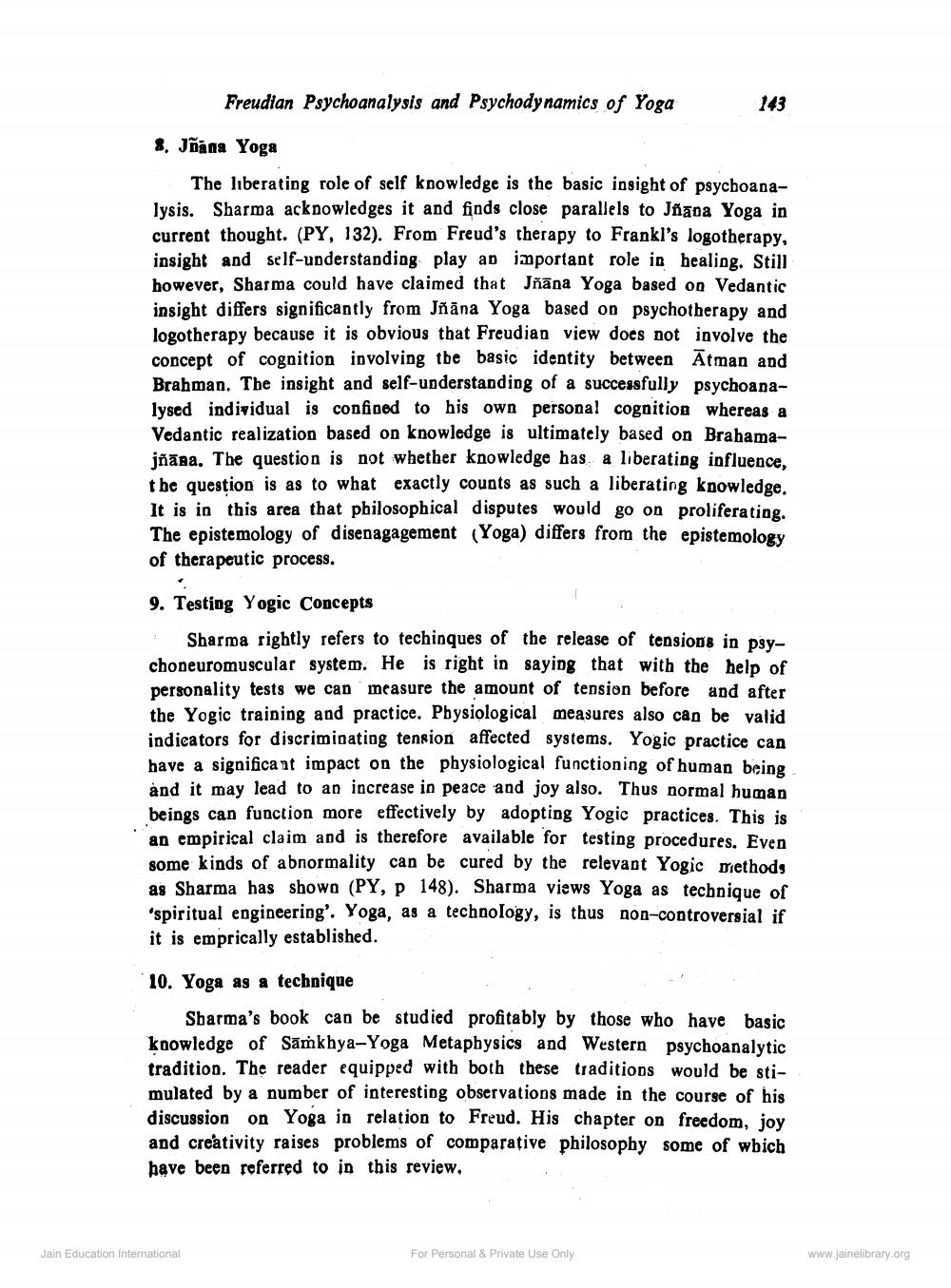________________
Freudian Psychoanalysis and Psychodynamics of Yoga
143
8. Jñana Yoga
The liberating role of self knowledge is the basic insight of psychoanalysis. Sharma acknowledges it and finds close parallels to Jñana Yoga in current thought. (PY, 132). From Freud's therapy to Frankl's logotherapy, insight and self-understanding play an important role in healing. Still however, Sharma could have claimed that Jñāna Yoga based on Vedantic insight differs significantly from Jñāna Yoga based on psychotherapy and logotherapy because it is obvious that Freudian view does not involve the concept of cognition involving tbe basic identity between Ātman and Brahman. The insight and self-understanding of a successfully psychoanalysed individual is confined to his own personal cognition whereas a Vedantic realization based on knowledge is ultimately based on Brahamajñāna. The question is not whether knowledge has a liberating influence. t be question is as to what exactly counts as such a liberating knowledge. It is in this area that philosophical disputes would go on proliferating. The epistemology of disenagagement (Yoga) differs from the epistemology of therapeutic process.
9. Testing Yogic Concepts 1 Sharma rightly refers to techinques of the release of tensions in psychoneuromuscular system. He is right in saying that with the help of personality tests we can measure the amount of tension before and after the Yogic training and practice. Physiological measures also can be valid indicators for discriminating tension affected systems. Yogic practice can have a significant impact on the physiological functioning of human being and it may lead to an increase in peace and joy also. Thus normal human beings can function more effectively by adopting Yogic practices. This is an empirical claim and is therefore available for testing procedures. Even some kinds of abnormality can be cured by the relevant Yogic methods as Sharma has shown (PY, P 148). Sharma views Yoga as technique of spiritual engineering'. Yoga, as a technology, is thus non-controversial if it is emprically established.
10. Yoga as a technique
Sharma's book can be studied profitably by those who have basic knowledge of Samkhya-Yoga Metaphysics and Western psychoanalytic tradition. The reader equipped with both these traditions would be stimulated by a number of interesting observations made in the course of his discussion on Yoga in relation to Freud. His chapter on freedom, joy and creativity raises problems of comparative philosophy some of wbich have been referred to in this review,
Jain Education International
For Personal & Private Use Only
www.jainelibrary.org




